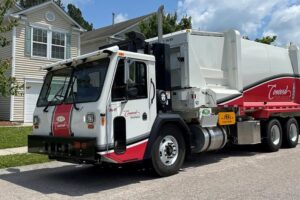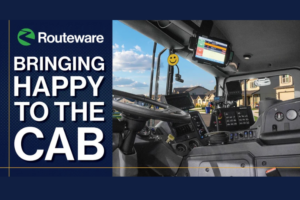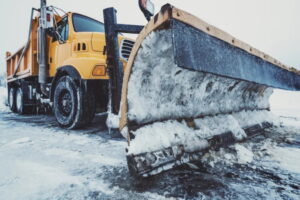[et_pb_section fb_built=”1″ _builder_version=”3.22″][et_pb_row _builder_version=”3.25″ background_size=”initial” background_position=”top_left” background_repeat=”repeat”][et_pb_column type=”4_4″ _builder_version=”3.25″ custom_padding=”|||” custom_padding__hover=”|||”][et_pb_text _builder_version=”4.9.4″ background_size=”initial” background_position=”top_left” background_repeat=”repeat” hover_enabled=”0″ sticky_enabled=”0″]
Food represents the single largest component of disposed municipal solid waste.
That’s about 22 percent of all trash in North America, according to the Environmental Protection Agency, yet just six percent of this material ends up composted, anaerobically digested or otherwise handled outside of a landfill. And landfills packed with wasted food contribute significantly to global climate change, emitting methane — a super-pollutant more powerful than CO2.
In California alone, people disposed of approximately 27 million tons of organic waste in 2017, with food waste representing about six million of those total tons, according to CalRecycle, the nickname for the California Department of Resources Recycling and Recovery, a branch of the state’s EPA that oversees waste and recycling programs.
Because organic waste represents such a serious problem, in 2020 the State of California passed important organics legislation known as Senate Bill 1383 — or SB 1383 for short. SB 1383 requires jurisdictions to provide organics education and collection — and to quantify outcomes to meet targets starting January 2022 — to support aggressive efforts to reduce greenhouse gas emissions and curb their damaging effects.
What SB 1393 means for jurisdictions
So what does all this mean for jurisdictions? CalRecycle names six main requirements of SB 1383:
-
- Provide organics collection services to all residents and businesses
- Establish an edible food recovery program
- Conduct education and outreach to the community
- Procure recyclable and recovered organics products
- Secure access to recycling and edible food recovery capacity
- Monitor compliance and conduct enforcement
While each jurisdiction decides how to organize and deliver new programs, all organics programs must meet new compliance requirements.
In this post, we’ll focus on two of these six requirements (Nos. 2 and 6 above), provide an overview of each, and explain how digital tools for communication and education can help jurisdictions comply with the law.
Requirement: Conduct education and outreach to the community
SB 1383 requires jurisdictions to annually educate everyone that generates organic waste about how to properly handle it. This includes individuals, businesses, commercial edible food generators and self-haulers.
The rules for this annual education and outreach get even more specific:
- Jurisdictions must provide print or electronic communication.
- Jurisdictions may supplement with direct communication.
- Appropriate educational material must be provided to linguistically isolated households.
Requirement: Monitor compliance and conduct enforcement
SB 1383 also requires a robust enforcement and inspection program to track participation and contamination. Two important pieces of this requirement are route reviews and recordkeeping:
- Review routes in commercial and residential areas to verify service and inspect for contamination. (This requirement applies to programs built around two or three containers/carts.)
- Maintain records and report to CalRecycle. Jurisdictions must keep records addressing the following:
- Organics collection services
- Hauler programs
- Contamination minimization
- Waivers
- Education and outreach
Meeting requirements with digital solutions
Digital communication tools can help ease the burden of these new requirements. Cloud-based solutions can help municipalities and private haulers successfully implement new programs, drive positive outcomes, measure their success, and then report on all of these activities back to CalRecycle.
Here’s quick look at which tools for digital communication can help with specific SB 1383 requirements:
- Requirement: Conduct education and outreach to the community
Digital solutions: ReCollect’s Collection Calendar, Waste Wizard, and Waste Sorting Game - Requirement: Monitor compliance and conduct enforcement
Digital solution: ReCollect’s Curbside Audit Tool - Requirement: Maintain Records and Report to CalRecycle
(Note: Recordkeeping is part of monitoring compliance and conducting enforcement.)
Digital solutions: ReCollect’s Collection Calendar, Waste Wizard, Waste Sorting Game, and Curbside Audit Tool
Reducing organic waste and curbside confusion
To meet requirements, jurisdictions need to help people understand how to use new programs. This begins with the program rollout — and one of the keys to success is participation, which starts with knowing your collection day.
You can help get new programs off on the right foot by providing information in an easy, digital format. ReCollect’s Collection Calendar is an off-the-shelf solution that makes printed calendars unnecessary, while helping people remember their collection day with personalized voice and text calendar reminders in 15 different languages.
The tool also includes a campaign feature that allows users to include other educational messages with these regularly scheduled collection reminders. Campaigns are helpful when rolling out new programs, especially when coupled with curbside monitoring. When you know which mistakes people are making, you can help correct them with regular, encouraging reminders about what goes where — and why.
Customers tell us that the Collection Calendar saves reduces phone calls and allows them to recoup that time for other tasks. Plus, it saves paper and eliminates the printing and mailing costs of paper calendars.
Reducing food waste by targeting top offenders
A key requirement of SB 1383 is helping people understand how to correctly use organics programs to divert material from landfills. But especially when collection programs are new, people will make mistakes. It can be difficult to keep track of what’s recyclable and what isn’t, and a little empathy on the part of the program provider can go a long way.
Providing what-goes-where information in an online database will not only make it easier for residents to have their questions answered — it also can provide helpful insights about which materials confuse them the most so that you can clear misunderstandings with subsequent educational messages.
The ReCollect Waste Wizard search engine can help. When people look up how to dispose of something on your website or via the app, you can see what’s being searched and target those materials for your next educational campaign. In turn, these insights can help you increase landfill diversion to help meet the statewide goals of SB 1383: to reduce organic waste disposal in a landfill by 75 percent by 2025.
Conducting education in a fun and purposeful way
SB 1383 requires jurisdictions to conduct educational programs annually and provide information in multiple languages. They also must maintain records of these activities and report about them to CalRecycle.
Digital tools for outreach allow educators to passively teach a wide audience about how to recycle organics properly. Not only that, but online tools educate in a remote setting — important in a pandemic and also during normal times (because remote learning saves time and other resources).
ReCollect’s Waste Sorting Game provides a fun, engaging way to teach people about organics online. The Game is localized to the specific organics program and available in multiple languages. Program providers can pull reports and view real-time data and analytics that shows who’s engaging and what they understand (and don’t) about organics programs.
Your website as the hub for recycling information
Leveraging your website as the centralized location for all information truly is the most effective method for educating people about organics programs and promoting the kind of good recycling habits that will make your diversion efforts a success.
Here are a few bonus tips for making the most of your website to educate and engage:
- Inform: Direct residents to your site for organics program information. Include program information in multiple languages and make regular updates.
- Centralize: Feature all of your program details in one spot.
- Analytics: Gain insight into your website visitors and visibility to the most commonly searched materials.
- Engage: Quickly educate residents about any changes to your recycling program through automated reminders.
- Link: If you post information about the program on your website, be sure to include the web address on all printed educational materials to send traffic back to your site.
ReCollect’s digital tools for recycling education and outreach can be integrated into your existing website, and they simplify the process of updating information through a single point of trust.
See what’s happening at the curb — and report on it
SB 1383 requires jurisdictions to monitor contamination and conduct enforcement. In real terms, those who provide programs built around two or three containers/carts must review them, verify service, and inspect for contamination. These activities are required for both commercial and residential routes.
This requirement means educators need to see what’s happening at the container level. One way to accomplish this is through curbside audits — but traditional paper-based audits can be time consuming, especially inputting the data into a spreadsheet or other format after it’s collected.
Digital tools again make this process easier. ReCollect’s Curbside Audit Tool allows staff to walk a route, flip lids, and collect information by tapping on their devices. No need for data entry, and reports and analytics appear pre-formatted in an easy-to-read dashboard, with real-time results illuminating contamination and participation issues.
Cloud-based recordkeeping is safe and centralized, and it takes the hassle out of gathering data and reporting.
Looking into the future with organics
As California jurisdictions continue to roll out organics programs, other states will quickly follow.
In roughly the first half of 2021 alone, lawmakers introduced at least 52 food waste bills in 18 states. And several cities, including Los Angeles and Madison, Wis., recently have created food waste task forces.
Municipalities striving to improve overall landfill diversion rates, too, have identified food waste and organics as the next green frontier.
Long-term solutions to the organic waste issue will require collaboration across industry and government sectors, and digital solutions for communication, education, outreach and recordkeeping are sure to remain an important part of them.
Note: Even though this blog post references law — California State Bill 1383 to be specific — it is not intended to be taken as legal advice. We’re not lawyers, after all. We just want to empower people to recycle right!
Learn more. Want to hear more about how you can make your California organics program a success? Check out our on-demand webinar!
[/et_pb_text][/et_pb_column][/et_pb_row][/et_pb_section]





